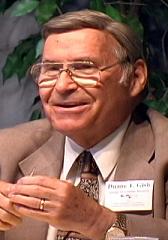A Quote by David Chalmers
Actually, I think my view is compatible with much of the work going on now in neuroscience and psychology, where people are studying the relationship of consciousness to neural and cognitive processes without really trying to reduce it to those processes.
Related Quotes
If we take an unprejudiced view of the processes of consciousness, free from all the so-called association rules and theories, we see at once that an idea is no more an even relatively constant thing than is a feeling or emotion or volitional process. There exist only changing and transient ideational processes ; there are no permanent ideas that return again and disappear again.
ACT psychology is a psychology of the normal. A lot of the psychologies that are out there are built on the psychology of the abnormal. We have all these syndromal boxes that we can put people in and so forth. The actual evidence on syndromes is not very good. There's no specific biological marker for any of the things that you see talked about in the media. Even things like schizophrenia - there's no specific and sensitive biological markers for these things. There may be some abnormal processes involved, but vastly more of human suffering comes from normal processes that run away from us.
Geology, perhaps more than any other department of natural philosophy, is a science of contemplation. It requires no experience or complicated apparatus, no minute processes upon the unknown processes of matter. It demands only an enquiring mind and senses alive to the facts almost everywhere presented in nature. And as it may be acquired without much difficulty, so it may be improved without much painful exertion.
We do not know how God created, what processes He used, for God used processes which are not now operating anywhere in the natural universe. This is why we refer to divine creation as special creation. We cannot discover by scientific investigations anything about the creative processes used by God.






































